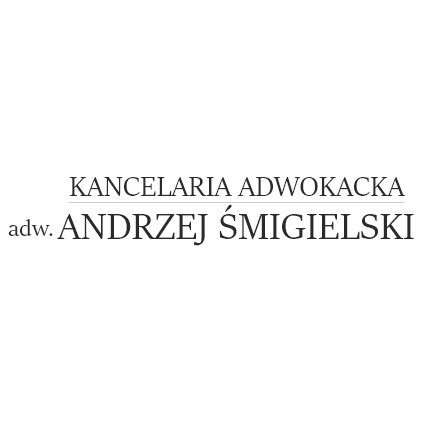Best Reinsurance Lawyers in Poland
Share your needs with us, get contacted by law firms.
Free. Takes 2 min.
Or refine your search by selecting a city:
List of the best lawyers in Poland
About Reinsurance Law in Poland
Reinsurance in Poland is a pivotal aspect of the insurance market. It essentially involves the transfer of risk from one insurance company to another, allowing primary insurers to manage risk effectively and ensure financial stability. The Polish reinsurance market, which is part of the broader European Union framework, is subject to local regulatory oversight by the Polish Financial Supervision Authority (PFSA). This authority ensures that the reinsurance practices align with the country’s legal statutes, promoting a stable and competitive market.
Why You May Need a Lawyer
There are several circumstances where seeking legal advice on reinsurance matters is beneficial:
- Contract Disputes: Disagreements over contract terms between insurers and reinsurers can be complex and require legal intervention.
- Compliance Issues: Ensuring adherence to both local and EU regulations can be intricate, necessitating expert guidance.
- Claims Handling: Legal assistance might be needed to address conflicts regarding the interpretation or denial of claims.
- Regulatory Changes: Keeping up with changes in legislation, especially with EU directives impacting local laws, may require expert interpretation.
- Risk Management: Lawyers can provide crucial insights into risk-related strategies and agreements, helping with more effective risk transfer mechanisms.
Local Laws Overview
The Polish reinsurance sector is governed by both domestic and EU laws, emphasizing market stability and consumer protection. Key aspects include:
- Insurance and Reinsurance Activities Act: This act governs the conduct of insurance and reinsurance businesses, establishing framework conditions including licensing and operational requirements.
- Solvency II Directive: As part of the EU, Poland adheres to this directive, which affects capital adequacy, and risk management standards to safeguard policyholder interests.
- Reporting and Transparency Obligations: Companies are mandated to maintain transparency, with duties related to financial reporting and regular disclosures to the PFSA.
- Consumer Protection Laws: These laws ensure the protection of the insured parties' rights, providing recourse mechanisms in cases of disputes.
- Insurance Mediation Act: This legislation governs the conduct of insurance and reinsurance intermediaries, promoting ethical standards and accountability.
Frequently Asked Questions
What is the role of reinsurance in Poland's insurance market?
Reinsurance helps primary insurers manage their risk exposure, enhances their capacity, and stabilizes the market by ensuring financial resilience.
Who regulates the reinsurance industry in Poland?
The Polish Financial Supervision Authority (PFSA) is the chief regulatory body overseeing the reinsurance market, ensuring compliance with local and EU laws.
What are the licensing requirements for operating in the reinsurance sector?
Entities must obtain a license from the PFSA to operate in the reinsurance market. This involves meeting specific capital, solvency, and operational standards.
How do EU regulations impact reinsurance in Poland?
Poland, as part of the EU, implements directives like Solvency II, which dictates risk management and capital requirements for reinsurance entities.
What should I consider when drafting a reinsurance contract?
Key considerations include clarity of terms, risk retention limits, coverage scope, claims handling procedures, and compliance with regulatory standards.
How are disputes in reinsurance agreements typically resolved?
Disputes may be resolved through negotiation, mediation, arbitration, or litigation, depending on the contractual agreement between the parties.
Can foreign companies operate in the Polish reinsurance market?
Yes, foreign companies can operate, but they must comply with local regulatory requirements and obtain necessary authorizations from the PFSA.
What happens if a reinsurance company fails to meet its obligations?
If a reinsurance company defaults, legal mechanisms and financial guarantees are activated to protect the interests of the primary insurers and the insured parties.
Are there specific reports reinsurance companies must file in Poland?
Yes, companies must regularly file financial and solvency reports with the PFSA to ensure transparency and compliance with regulatory standards.
What avenues exist for a policyholder to challenge a denied claim?
Policyholders can appeal the decision with the insurer, seek mediation, or pursue legal action to contest a denied claim based on contract terms and applicable laws.
Additional Resources
For further guidance, the following resources can be particularly useful:
- Polish Financial Supervision Authority (PFSA): Offers guidelines and regulatory updates for the insurance and reinsurance markets.
- Polish Insurance Association: Provides information and support for entities operating in Poland’s insurance sector.
- European Insurance and Occupational Pensions Authority (EIOPA): Supplies EU-wide regulatory frameworks and advisories affecting Poland.
- Polish Bar Association: A directory of legal professionals specializing in reinsurance law and other relevant fields.
- Industry Publications and Journals: Regularly publish updates and analyses on trends and legislative changes affecting reinsurance.
Next Steps
If you find yourself needing legal assistance in reinsurance:
- Identify Your Needs: Determine the specific legal issues or questions you have regarding reinsurance.
- Consult with Experts: Reach out to legal professionals specializing in insurance and reinsurance law for advice and representation.
- Gather Documentation: Collect any relevant contracts, correspondence, and records that may pertain to your legal inquiry.
- Stay Informed: Keep abreast of any legislative changes or updates in the reinsurance sector that might affect your situation.
- Make Use of Resources: Leverage the additional resources and organizations mentioned for in-depth information and support.
Lawzana helps you find the best lawyers and law firms in Poland through a curated and pre-screened list of qualified legal professionals. Our platform offers rankings and detailed profiles of attorneys and law firms, allowing you to compare based on practice areas, including Reinsurance, experience, and client feedback.
Each profile includes a description of the firm's areas of practice, client reviews, team members and partners, year of establishment, spoken languages, office locations, contact information, social media presence, and any published articles or resources. Most firms on our platform speak English and are experienced in both local and international legal matters.
Get a quote from top-rated law firms in Poland — quickly, securely, and without unnecessary hassle.
Disclaimer:
The information provided on this page is for general informational purposes only and does not constitute legal advice. While we strive to ensure the accuracy and relevance of the content, legal information may change over time, and interpretations of the law can vary. You should always consult with a qualified legal professional for advice specific to your situation.
We disclaim all liability for actions taken or not taken based on the content of this page. If you believe any information is incorrect or outdated, please contact us, and we will review and update it where appropriate.
Browse reinsurance law firms by city in Poland
Refine your search by selecting a city.

















